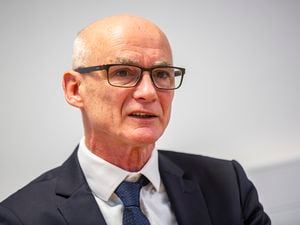No formal complaint, so no investigation into States bullying claims
An investigation into alleged bullying by politicians has been ruled out by the Channel Islands Commissioner for Standards, as there have been no formal complaints.

Dr Melissa McCullough said it was possible that politicians and civil servants feared the consequences of speaking up.
Her comments were made in a response to campaign group Women in Public Life, which reported the issue following accusations of poor behaviour made by several deputies during the motion of no confidence debate in the former Policy & Resources Committee in November.
Dr McCullough said that she had given careful consideration over whether or not to initiate an investigation.
While she considered the issues raised to be ‘very serious’ and potentially ‘detrimental to the wellbeing of both States members and civil servants’, the fact that she had not received any complaints relating to the alleged behaviour created a problem when it came to launching an investigation.
The main problem, she said, was that neither civil servants nor members could be compelled to provide evidence.
‘It appears to me that, understandably, there may be a hesitancy by both members and civil servants to do so, this could be due to fear of the consequences to them professionally and personally of speaking up, among other reasons.
‘I do not believe it would be appropriate, given the serious and sensitive nature of these sorts of allegations, that the commissioner should embark on a quest to find those willing to come forward.
‘Therefore, it is my considered view that our own investigation is not an option that would work best to try to tackle this issue.’
She said that addressing unacceptable behaviours could be achieved in a number of other ways, namely proposed changes to the States Code of Conduct, including definitions of unacceptable behaviours, which are set to be debated later this month.
Other recommendations put forward by Dr McCullough included training for members on unacceptable behaviours, which she said could help promote an environment with zero tolerance for such behaviours.
She said that she would be copying her response to States’ Assembly & Constitution Committee president Deputy Carl Meerveld, adding that she hoped a survey similar to a Bullying, Harassment and Misconduct Survey, published by the UK Cabinet Office in June 2018, might also be conducted in order to get a magnitude of the problem of unacceptable behaviours.
‘The States Assembly should be a place where people feel secure, valued and included and where unacceptable behaviours are not tolerated. I would encourage anyone who feels they have experienced these sorts of behaviours by members, including bullying, intimidation, and harassment, to consider making a formal complaint which will be treated in the strictest confidence.’
Women in Public Life expressed its gratitude to Dr McCullough for her ‘thoughtful and considered response’, and said that it was looking forward to attending Sacc’s meeting next Thursday to discuss the actions the committee was taking.





